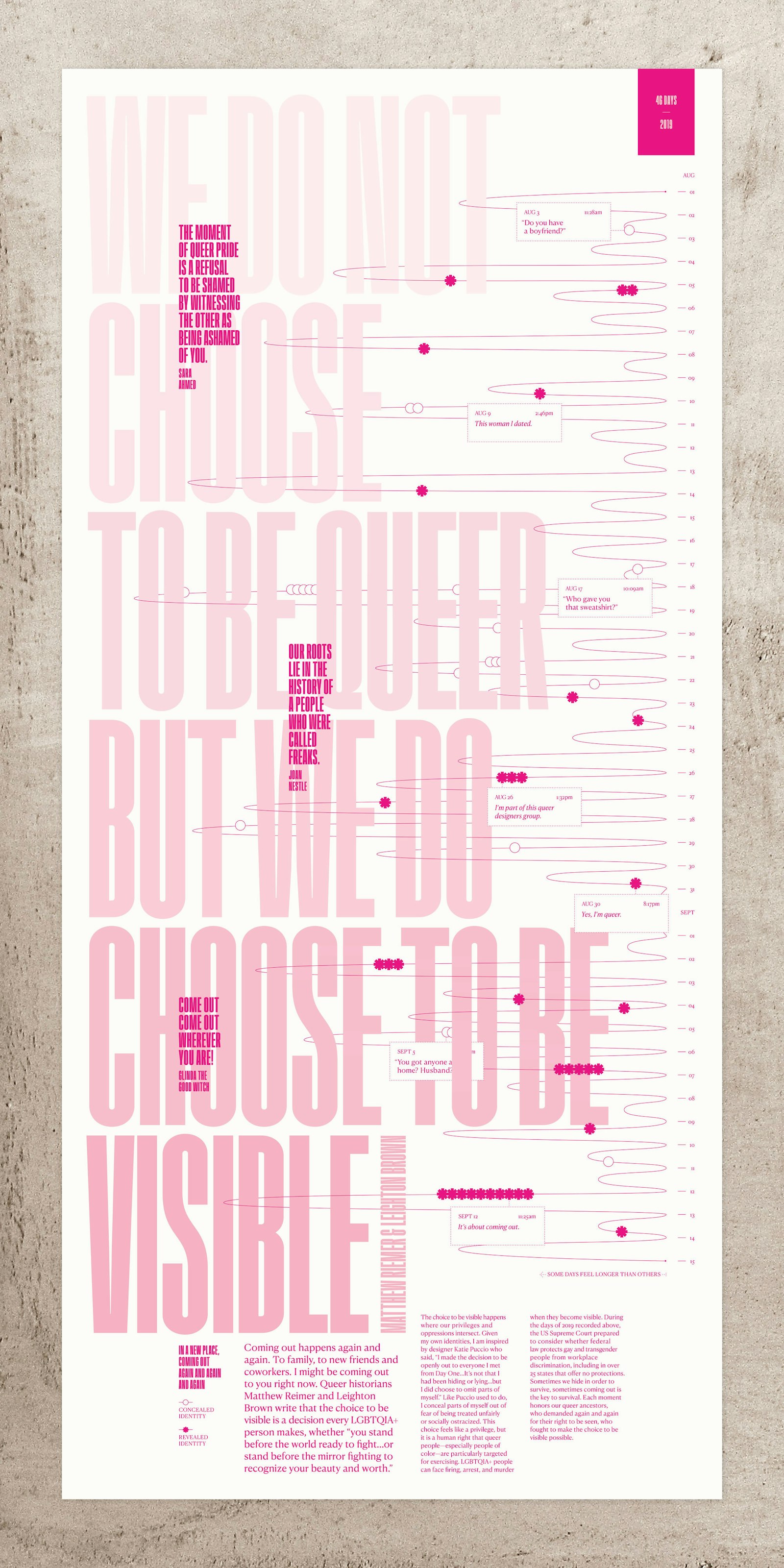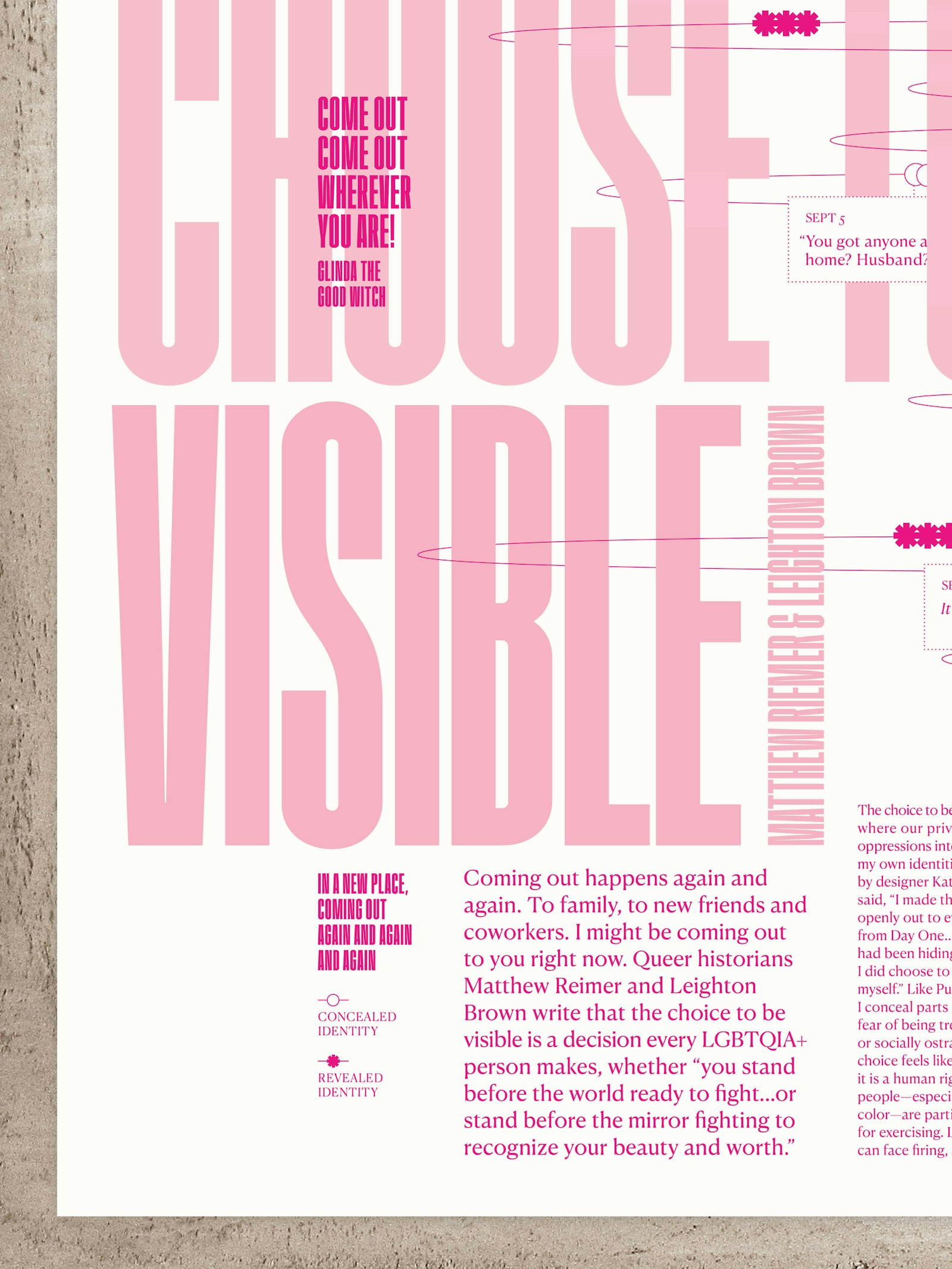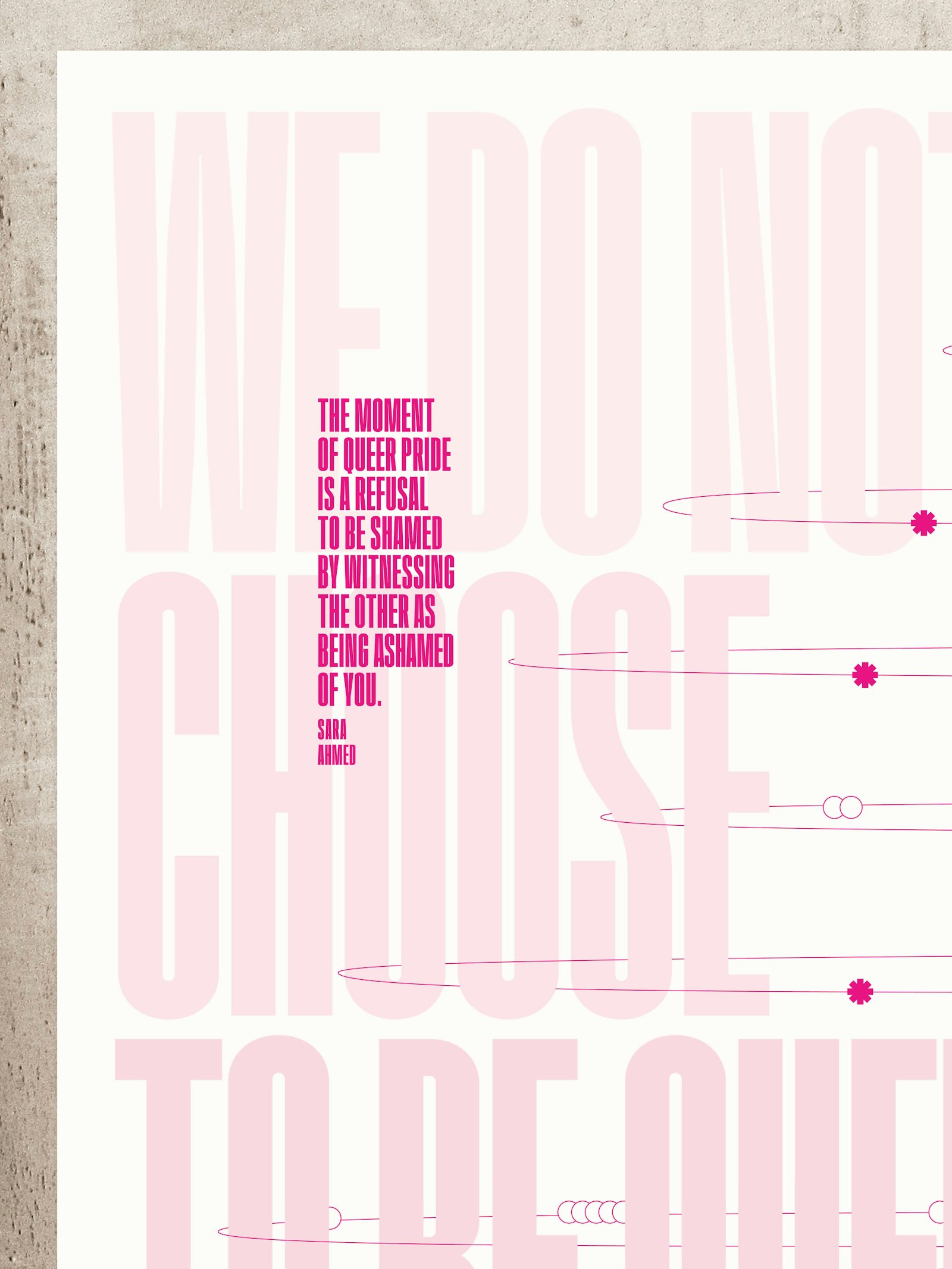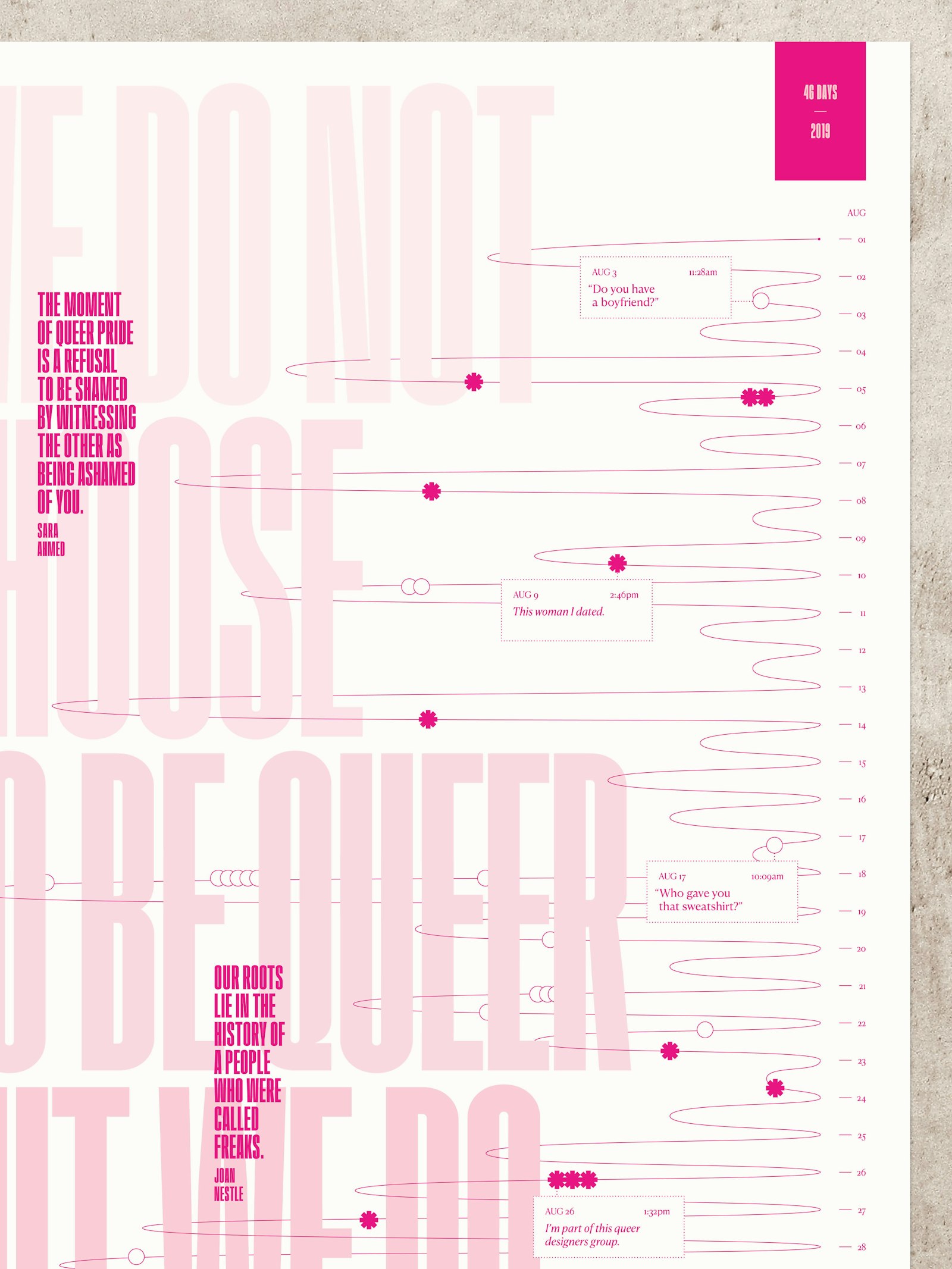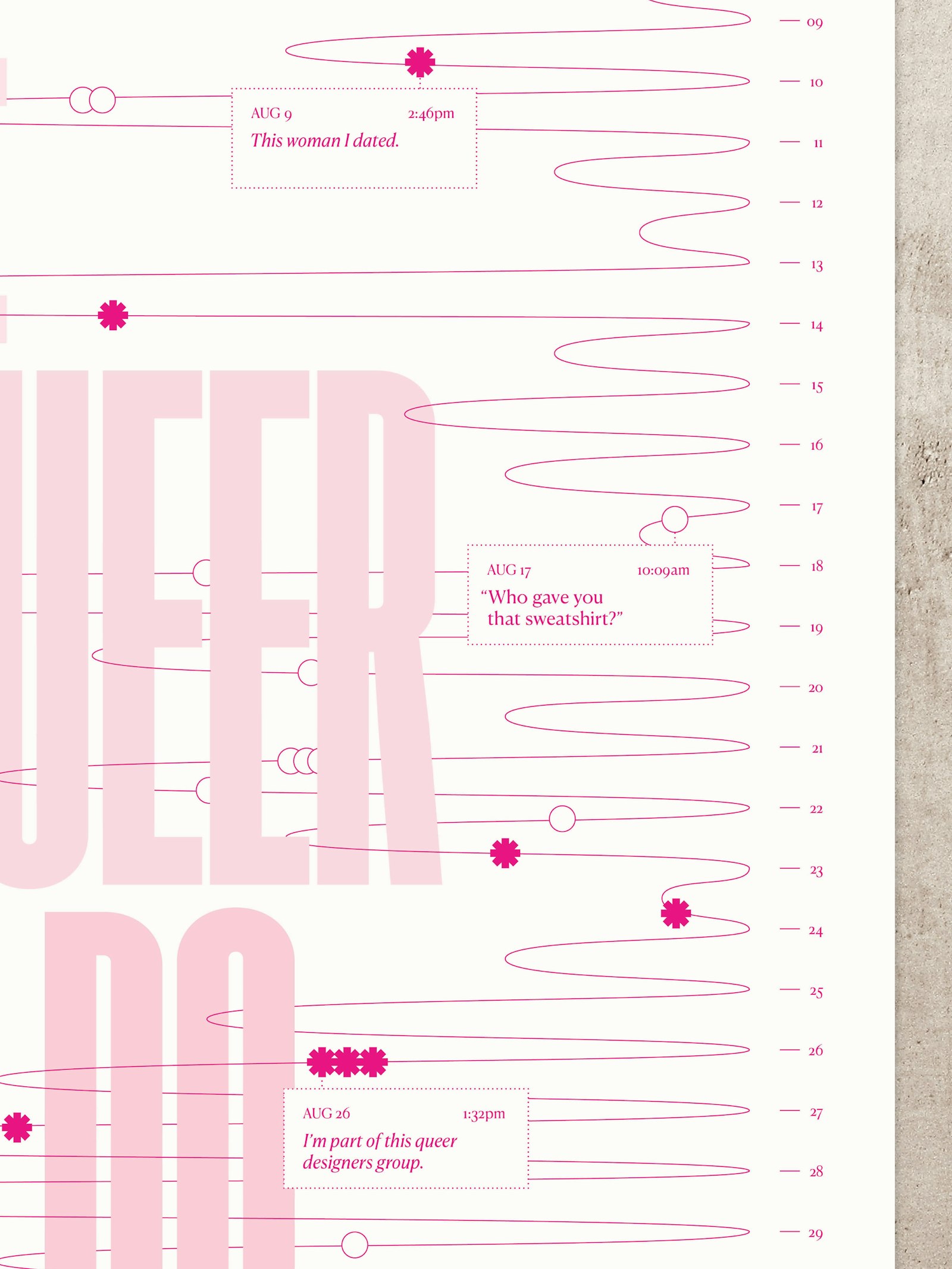Coming out does not happen just once. Coming out happens again and again. To my family, to new friends and coworkers. I might be coming out to you right now. In this biographical diagram, I recorded the moments of revealing and concealing my queer identity during the first forty-six days in a new city. Each point represents one person to whom I choose to come out to—or not.
The moments sit on a timeline that itself is concealed and revealed over the length of the diagram. It wraps in front of and behind a quote that describes the choice of becoming visible. The undulating shape of the timeline references a heart beat, the rate of which increases during a period of amplified emotion brought on by the threat, or choice of, coming out.
The most prominent type is set in graduated tones of magenta, and becomes increasingly visible as my identity does over the course of forty-six days. The annotations describing conversations in which I made a choice around visibility are also concealed and revealed. Some appear completely legible, and others remain partially hidden.
The visualization also includes quotes related to coming out, the largest of which is attributed to queer historians Matthew Reimer and Leighton Brown. As Reimer and Brown imply, the choice to be visible happens where our privileges and oppressions intersect. This was top of mind for me during the forty-six days recorded in the diagram, during which the US Supreme Court prepared to consider whether federal law protects gay and transgender people from workplace discrimination, including in over 25 states that offer no protections. At this moment in history, it was especially important to make my own experience visible.
Typefaces: CIMO by DSType, Canela by Commercial Type
- Professor, Program Director
- Jennifer Cole Phillips
- Graphic Designer, Author (unless where indicated otherwise)
- Shoshana Rose Schultz
- Photographer, concrete wall
- Andrew Buchanan
